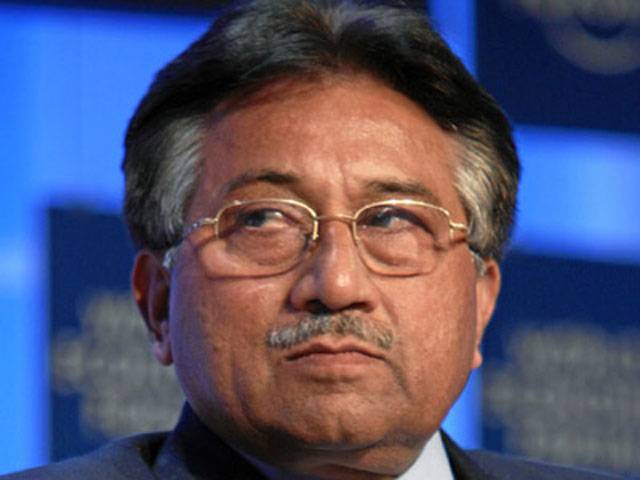KARACHI - Former president General (r) Pervez Musharraf on Tuesday asked Sindh High Court to let him leave the country to visit his sick mother in Dubai, legal sources said.
Musharraf is facing four major criminal cases dating back to his 1999-2008 rule of the nuclear-armed nation, including one related to the assassination of former prime minister Benazir Bhutto.
Tuesday's move could open the way for the 70-year-old to leave Pakistan before his cases are completed, saving the powerful military the embarrassment of having its former chief tried and potentially sentenced by civilian courts.
He is on bail in all four cases, though he remains under guard at his Islamabad farmhouse because of Taliban threats to his life. But he is unable to leave Pakistan as his name appears on the government's "exit control list".
The 70-year-old's lawyer AQ Hallipota on Tuesday filed an application with the Sindh High Court in Karachi to have his name removed from the list, court sources said.
"Since he has been bailed in all the cases against him, keeping his name on the exit control list is unjust," Asiya Ishaq, spokesperson for Musharraf's political party, the All-Pakistan Muslim League, told AFP.
"This is his legal right to travel anywhere as a free citizen of this country. He also wants to see his ailing mother in Dubai."
The court is expected to rule on the application on November 18. There have been rumours in recent months that a deal would be reached for Musharraf to leave Pakistan without going through with his trials. His aides have insisted the former commando, who returned to Pakistan in March after years of self-imposed exile to run in the May general election, will stay to clear his name.
But another member of his legal team, Afshan Adil, told AFP Musharraf's mother was gravely ill and she expected the court to allow him to see her on compassionate grounds.
"His mother is in a critical condition, she has been admitted to the Intensive Care Unit of the hospital and he needs to see her," she said.
Musharraf technically became a free man last week when an Islamabad district court granted him bail over the deadly raid on Red Mosque in the capital in 2007.
His return to Pakistan was far from the triumphant occasion he had hoped for.
He was barred from contesting the general election, which was won convincingly by Prime Minister Nawaz Sharif - the man he ousted from power in 1999 - and was hit with a series of criminal cases dating back to his rule.
Apart from the mosque raid, he faces charges over Benazir Bhutto's murder at an election rally in 2007, the death of Nawab Akbar Bugti in 2006 and detention of judges in 2007.
He was put under house arrest in April, an unprecedented move against a former army chief in a country where the military holds huge power.
Thursday, April 18, 2024
Musharraf seeks end to travel ban

Jailed Myanmar leader Suu Kyi moved to house arrest
April 18, 2024
Jahangir Khan PSA Satellite Squash Series strats
April 18, 2024
Pakistan women face West Indies women in first ODI today
April 18, 2024
Asad, Amir reach PTLA Junior National Tennis semis
April 18, 2024
Rail Revival
April 17, 2024
Addressing Climate Change
April 17, 2024
Saudi Investment
April 17, 2024
Political Reconciliation
April 16, 2024
Pricing Pressures
April 16, 2024
Workforce inequality
April 17, 2024
New partnerships
April 17, 2024
Shikarpur crisis
April 17, 2024
Peace quest
April 17, 2024
Democratic harmony
April 16, 2024
ePaper - Nawaiwaqt
Advertisement
Nawaiwaqt Group | Copyright © 2024





